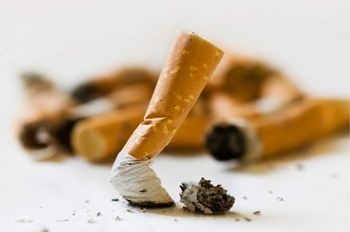 There were several propositions on Election Day in Southern California which garnered big interest among Korean-Americans. One of those was Proposition 56, which many Korean-Americans joined forces with Los Angeles City Councilman David Ryu to advocate for people to quit smoking.
There were several propositions on Election Day in Southern California which garnered big interest among Korean-Americans. One of those was Proposition 56, which many Korean-Americans joined forces with Los Angeles City Councilman David Ryu to advocate for people to quit smoking.
In the end, 62.9% of the voters responded yes on Proposition 56, prompting a tax increase on cigarettes to $2.87 per pack. The same concept will also apply to electronic cigarettes, which also contains nicotine. It is expected that regular cigarettes will cost around $10 per pack. The last time a pack of cigarettes increased in price was in 1998.
“It obviously puts pressure on me as a smoker to pay more for cigarettes,” said Ken Jeong, a 35-year-old Koreatown resident. “Finding a place to smoke has been difficult as is in recent years, so the price increase only adds to the already existing difficulties.”
On top of encouraging smokers to turn to a healthier lifestyle, Proposition 56 is also expected to bring California an additional $200 million in increased tax on cigarettes.
“It’s only natural to expect that less people will smoke if cigarettes are more expensive,” said Esther Yi, a 52-year-old who also lives in Koreatown. “If the regulation on cigarettes continue to get stricter this way, it will become more difficult to manufacture and sell them in the end.”
Another big point of interest for the Korean community was Proposition 67, which 52 percent of the voters responded yes to. Environmentalists were at the forefront of advocating the need for Proposition 67, as California is now the first state in the country to ban the sale of plastic bags.
The first city in California to ban selling plastic bags was San Francisco. Since then, 155 counties across the state currently bans the sale of plastic bags while charging 10 cents per one paper bag as of October 2016.
“I’ve already gotten used to carrying my own basket when I go grocery shopping,” said Amy Jeong, a 44-year-old housewife in Southern California. “It’s only right to limit the usage of plastic bags if you consider the need to protect the environment.”
However, there are also dissenting voices against banning the sale of plastic bags.
“Plastic bags made things convenient as I also used them as garbage bags at home,” said Soon-ok Kim, 66. “It obviously doesn’t cost much to purchase the bags, but it’s not a good feeling to know that I have to pay additionally to buy the bags.”
By Byong Il Kim




